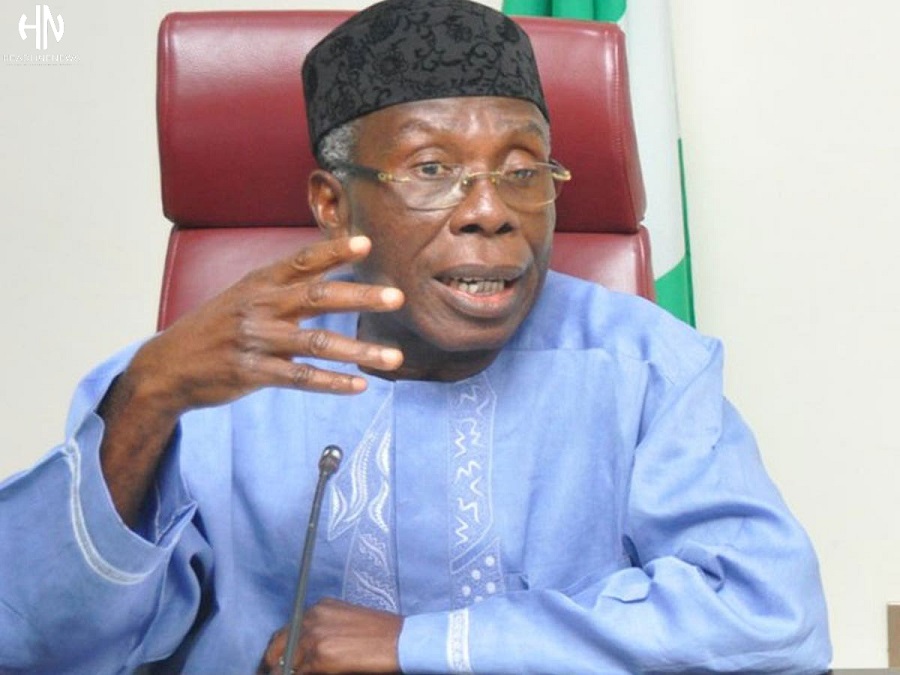AFTER BUHARI: WHAT THE NORTH MUST FOCUS ON NOW—AUDU OGBEH WARNS
By Andrew Agbese & Itodo Daniel Sule
Published: Saturday, July 19, 2025
Former Minister of Agriculture and Chairman of the Arewa Consultative Forum (ACF), Chief Audu Ogbeh, has urged the North to shift focus from politics and urgently confront its worsening economic challenges. Speaking in an exclusive interview, the elder statesman painted a grim picture of economic decay in Northern Nigeria and warned that unless the region changes course, its future role in Nigeria’s political and national life will continue to shrink.
Ogbeh, who has served as Minister of Communications, Minister of Agriculture, and PDP National Chairman, said that with the passing of former President Muhammadu Buhari, the North must reassess its position and reset its priorities.

“Politics Should Be the Least on Our Agenda”
“The biggest challenge in the North is not political,” Ogbeh declared. “It’s economic. The North is the weakest part of the Nigerian equation. We have no industries. Even the agriculture we’re known for is in serious trouble because farmers can’t even go to the farm.”
He lamented that despite being mostly rural and agrarian, Northern communities lack the infrastructure and investment needed to modernize agriculture and drive industrial development. The insecurity in many rural areas has further worsened the situation, keeping farmers off their lands and cutting food production.

He said governors across the region appear disconnected from the economic crisis affecting the region.
“In many of the states, you don’t hear any governor talking about economic growth in the North. You wonder what they are governing.”
Ogbeh emphasized that the politics of appointments and power-sharing will not solve the North’s problems. “You can have every minister or director from your village, but as long as the economy in your environment is stagnant, there is nothing those appointments and salaries can do for you.”

Post-Buhari Era: Learning from Past Leaders
Reflecting on the legacy of the late Muhammadu Buhari, Ogbeh said the former president’s resilience, patience, and cautious approach to economic policy should be studied by aspiring leaders.
“Buhari had the strength to resist some harmful economic prescriptions. Look at the simultaneous removal of fuel subsidy and devaluation of the naira. These policies, often imposed by foreign experts, have inflicted deep pain on Nigerians,” he said.
Ogbeh also paid tribute to past Northern leaders such as Sir Ahmadu Bello, Yakubu Gowon, and Shehu Shagari, praising their commitment to national development.
He described Gowon as a visionary who conceived the idea of Abuja as Nigeria’s capital and Shagari as a thoughtful leader who resisted devaluation despite immense international pressure.

Vacuum in Leadership? A New Generation Must Step Up
Asked whether any current Northern politician could fill the void left by Buhari, Ogbeh said a new leader would certainly emerge but warned that no one could succeed without a solid economic foundation.
“There will not be a permanent vacuum. But whoever emerges must have learned from the elders before him,” he said. “The North must focus on producing leaders who are economically literate and development-oriented.”

Warning on Fiscal Imbalance and Regional Disparities
Ogbeh revealed a startling conversation with former CBN Governor Godwin Emefiele, who told him that 72% of Nigeria’s currency circulates in Lagos alone, leaving just 28% for the rest of the country.
“That means the North is barely participating in the national economy,” he warned. “We’re largely peasant farmers and the little we produce is not enough. There’s hardly any industry in the North anymore.”
He also blamed poor governance at the state and local government levels for deepening poverty and underdevelopment in rural areas.
“The local government system is a disaster,” he said. “Most governors ignore the Supreme Court ruling that mandates LG autonomy. So, the villages are dying. No roads, no schools, no health centers. The youths are angry, and they are turning to crime.”

Time for a Northern Economic Blueprint
Ogbeh stressed that the North needs a new strategy focused on agriculture, industry, education, and local governance reform. He called for a “Northern Agenda” that prioritizes rural development and economic self-reliance.
“I once warned that politics is the only industry in the North. That’s dangerous. We must now reverse that. Let the politics come, yes—but let it come after we’ve fixed the economy.”
He said northern leaders must begin thinking like Karl Marx, who was quoted at his funeral in 1883 as saying: “A man must first feed himself, clothe himself, and house himself before turning to philosophy and politics.”
The South is Ahead — The North Must Catch Up
Ogbeh acknowledged the economic strength of the Southern regions, particularly Lagos, and said the South needs minimal government intervention due to its strong private sector.
“In the North, we need a lot of government,” he said. “But our leaders must begin to understand that appointments alone will not save us. We must become builders, industrialists, educators, innovators.”
Call for National Dialogue on Local Government Reform
He also called for an urgent national conference to address the collapse of the local government system across Nigeria, which he believes is the root cause of rural poverty and youth unemployment.
“You go to villages and there are no graders to level the roads. Pregnant women are transported in wheelbarrows because there’s no health center. Children sit on the floor to learn—if there are even teachers,” he lamented.
Conclusion: A Message to the North
Chief Ogbeh concluded with a heartfelt appeal:
“My message is, first of all, condolence to the family of Muhammadu Buhari. Secondly, a wake-up call to the North. The politics will come, yes, and rotation is a good idea—but while we wait, let us rebuild our economy. Let that be our priority.”
As the region reflects on the post-Buhari era, Ogbeh’s words serve as a timely reminder that leadership is not measured only by political ambition, but by what it delivers in tangible transformation—and in the North, that transformation must begin with the economy.




